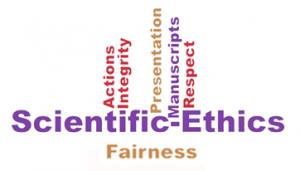In science, our ideas and mental labor are our lifeblood: So what happens when a trusted mentor or senior PI takes advantage or credit for the work of an early career scientist has conducted? A bad mentor can make or break a budding, inexperienced scientist. Although rare, the same can be said of students taking credit for the work of mentors, particularly male students with female mentors.

There is the grey area between advising on research and taking credit for something a mentee has done. Senior scientists can be great at selling research to convince upper management or funding entities to continue to fund the work. Inversely, if done incorrectly, this can impede careers where there are few protections in place for students or interns to report when their name is not on their work. It is generally customary to give second or third authorship to advisors or PIs, but the inverse is not often the case.
There are no community-wide policies in place for how to deal with irresponsible and unethical conduct in research, such as stealing authorship credit. Or at least there are not any policies that carry the force of law or have actual consequences. Unlike say, the Bar Association for lawyers, or the American Medical Association for doctors, single governing body in science to pass standards and enforce them. Scientists have the National Science Foundation (NSF) guidelines or institutional enforcement through offices of internal affairs. There is also the Committee on Publication Ethics (COPE), but this is a voluntary enterprise and its guidelines do not carry the force of law. There are also ethics rules for professional engineers, etc., but these rules do not apply to the research community at large.
It seems logical that as with other professions, research scientists ought to have some formal body for publishing ethics guidelines, dealing with authorship, and other professional disputes. A committee on professional responsibility in research science, perhaps, should be developed for our community. What model to use for this committee, or how it would operate, is a tricky question with many potential solutions.
Smartypants does not claim to have the best solution, but we would like to open up this discussion to opinions of researchers.
 One idea is to have this committee work with accrediting institutions and require, as part of the program accreditation, that students take a professional responsibility course, as a prerequisite for earning a degree. The professional responsibility course would be designed by the committee, and teach a set of committee designed (and published) standards for ethics, and for how disputes are to be handled. Once a student earns their degree and enters the science workforce, they are bound by these standards. The committee could have a formal complaint process, an arbitration commission to enforce the standards, and provide censure for researchers who violate the code.
One idea is to have this committee work with accrediting institutions and require, as part of the program accreditation, that students take a professional responsibility course, as a prerequisite for earning a degree. The professional responsibility course would be designed by the committee, and teach a set of committee designed (and published) standards for ethics, and for how disputes are to be handled. Once a student earns their degree and enters the science workforce, they are bound by these standards. The committee could have a formal complaint process, an arbitration commission to enforce the standards, and provide censure for researchers who violate the code.

Expanding the previous idea is a university level course requirement on scientific ethics (#sciETHICS). There are ethics courses -typically under liberal arts or philosophy – for making decisions on policy as well as medical ethics. If we (collective we) can establish moral principles to govern behavior behind authorship, this issue may improve itself. We spoke with DoctorZen who has written about this topic and starts his graduate level course at the University of Texas Rio Grande Valley by asking about authorship policies. He brings up valid points asking students about determining authorship and the order of authorship. In addition, he starts the discussion about what it means to be first vs. second author and so on including how to distribute authorship based on contribution. This concept is brilliant and we hope more academic scientists can promote this discussion to make authorship more mainstream.
Considerations for how to deal with this problem on an institutional level:
Let us know your thoughts or ideas on this complex issue!
This article was first published at Smarty Pants Science, and we are very grateful to be allowed to share it on The female Scientist, too!






